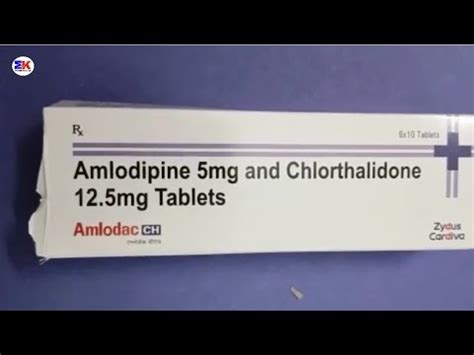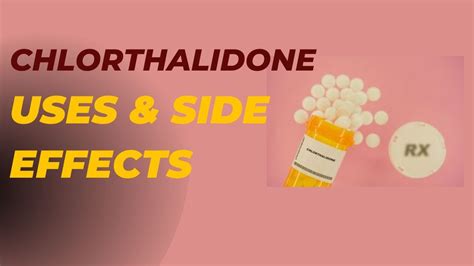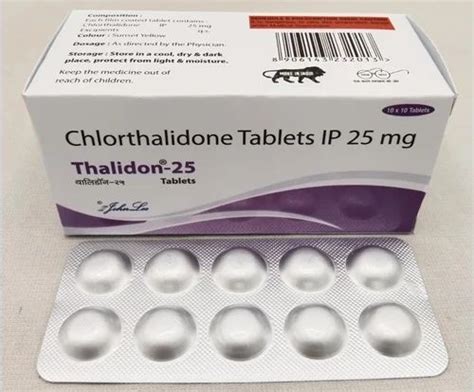Intro
Discover key facts about Chlorthalidone 25mg, a diuretic medication, including its uses, benefits, and side effects, to manage hypertension and edema effectively.
Chlorthalidone is a medication that has been widely used for decades to treat hypertension and edema. As a diuretic, it helps the body get rid of excess fluid and salt, which can contribute to high blood pressure and swelling. Here are some key facts about Chlorthalidone 25mg that highlight its importance and usage.
Chlorthalidone has been a cornerstone in the management of hypertension due to its efficacy in lowering blood pressure and reducing the risk of cardiovascular events. Its mechanism of action involves inhibiting the reabsorption of sodium and chloride in the kidneys, leading to increased urine production and subsequently reducing blood volume and pressure. This makes Chlorthalidone 25mg a valuable treatment option for patients with hypertension, as it not only helps manage symptoms but also contributes to the prevention of long-term cardiovascular complications.
The dosage of Chlorthalidone can vary depending on the condition being treated and the patient's response to the medication. For hypertension, the typical starting dose is 25mg daily, which can be adjusted based on the patient's blood pressure response. It's essential for patients to follow the prescribed dosage and not to exceed it without consulting their healthcare provider, as excessive diuresis can lead to dehydration and electrolyte imbalances. The effectiveness of Chlorthalidone 25mg in managing hypertension and edema, combined with its relatively long duration of action, makes it a preferred choice for many healthcare providers.
Introduction to Chlorthalidone 25mg

Benefits of Chlorthalidone 25mg

Working Mechanism of Chlorthalidone 25mg
Chlorthalidone 25mg works by acting on the kidneys to increase urine production. This action leads to a reduction in the volume of fluid in the blood vessels, which in turn lowers blood pressure. The medication is particularly effective because it has a prolonged action, allowing for a sustained diuretic effect throughout the day. This prolonged action contributes to its effectiveness in controlling blood pressure and managing edema over a 24-hour period.Side Effects of Chlorthalidone 25mg

Precautions and Interactions
Patients taking Chlorthalidone 25mg should be aware of potential interactions with other medications and certain conditions. For example, Chlorthalidone can interact with nonsteroidal anti-inflammatory drugs (NSAIDs), decreasing its diuretic effect. Additionally, patients with kidney or liver disease should use Chlorthalidone with caution, as it may exacerbate these conditions. Pregnancy and breastfeeding are also considerations, as the medication can affect the fetus or baby. A thorough discussion with a healthcare provider about medical history and current medications is essential before starting Chlorthalidone 25mg.Practical Considerations for Patients

Steps for Effective Management
Effective management of hypertension or edema with Chlorthalidone 25mg involves several steps: - Adhering to the prescribed dosage and schedule. - Monitoring and reporting side effects. - Maintaining a healthy lifestyle, including a balanced diet and regular physical activity. - Keeping follow-up appointments with the healthcare provider to adjust the treatment plan as necessary. By following these steps and understanding the benefits and potential side effects of Chlorthalidone 25mg, patients can effectively manage their condition and improve their quality of life.Statistical Data and Research Findings

Future Perspectives and Developments
As research continues to evolve, there may be future developments in the use of Chlorthalidone 25mg. This could include new formulations or combination therapies designed to enhance its efficacy or reduce side effects. Additionally, ongoing studies may provide more insight into the optimal use of Chlorthalidone in different patient populations, such as those with kidney disease or heart failure. Staying informed about these advancements can help patients and healthcare providers make the most informed decisions about treatment.Conclusion and Final Thoughts

Encouraging Engagement and Discussion
We invite readers to share their experiences or ask questions about Chlorthalidone 25mg. Your insights and inquiries can help foster a community of support and knowledge, benefiting everyone involved in the management of hypertension and edema. Whether you are a patient, a healthcare provider, or simply someone interested in learning more about this topic, your participation in the discussion is valued. Together, we can promote a better understanding of Chlorthalidone 25mg and its role in improving health outcomes.What is the primary use of Chlorthalidone 25mg?
+Chlorthalidone 25mg is primarily used to treat hypertension (high blood pressure) and edema (swelling caused by excess fluid).
How does Chlorthalidone 25mg work?
+Chlorthalidone 25mg works by increasing urine production, which helps reduce the volume of fluid in the blood vessels and lower blood pressure.
What are common side effects of Chlorthalidone 25mg?
+Common side effects include dizziness, lightheadedness, and increased urination. More serious side effects can include dehydration and electrolyte imbalances.
